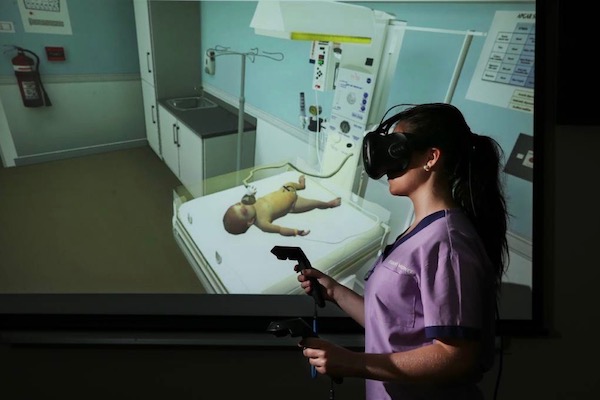Published on the 18/08/2022 | Written by Heather Wright

Education NZ looks to reimagine international education…
An online indigenous eCommerce program, virtual medical coaching, financial literacy training for secondary schools and a global online rugby coaching course developed with The Crusaders are among the ‘big ideas’ receiving government funding to help ‘reimagine’ international education.
“The pilot projects will help explore what could set New Zealand apart from its competitors.”
Six organisations scooped up just over NZ$1.6 million in funding from Education New Zealand’s International Education Product Innovation Fund (PIF) designed to support providers of education, whether established, new or emerging – to explore, develop and test pilot projects of new products and services that could ‘reimagine’ international education.
“The pilot projects developed through the PIF will help explore what could set New Zealand apart from its competitors, how students want to engage with New Zealand education, and how to increase the sector’s resilience to future shocks,” Education NZ said in announcing the opening of the funding round earlier this year.
Christchurch’s Boma is the company behind the rugby offering, aiming to ‘shake up the way leadership is taught around the world’.
The company is creating a global, cohort-based course for rugby coaches from high school teams to the professional level, delivered in partnership with The Crusaders.
“Unlike competitors who offer training through on-demand video but generate low completion rates, Boma’s pilot project with The Crusaders combines the flexibility of self-directed learning with the accountability of being part of a real-time cohort of learners,” Education NZ says.
It says the Crusaders Coaching Leadership Programme, which will run later this year for the first time, taps into a new audience – rugby coaches around the world looking to learn ‘the Crusaders Way’. Prior to Covid-19 coaches traveled to New Zealand to learn what makes the team successful.
Boma says it sees a logical expansion from rugby leadership into sports leadership and business leadership and then into general leadership.
Te Whare Hukahuka’s Ka Hao e-commerce program, designed for indigenous people across New Zealand, Australia and the South Pacific, will see online learners designing, building, launching and growing their own ecommerce systems, supported by a pastoral care team to boost success rates.
Virtual Medical Coaching will harness VR software to train students in childbirth, with machine learning algorithms to enable fast and accurate feedback to the learner and tutors.
“Existing options for midwifery training include a physical mannequin simulator, but this can be prohibitively expensive, out of reach of many training providers, and doesn’t offer students maximum learning hours,” Education NZ says.
“The VR simulation will be available to students wherever they are, and whenever they need to practice. The nature of the VR experience means that modern learning styles, such as asynchronous and remote learning, are well catered for.”
Banqer has won funding for a financial education platform for secondary schools, helping students learn by doing, exploring their own simulative economy where they create fictitious bank accounts, earn income, pay expenses, invest, insure, budget and all the fun things those of us running businesses, or just handling adult finances, have to face.
The final recipients of funding are Chasing Time English, providing live-action-drama videos to teach English and Te Kaihau Education’s global enterprise coaching and peer group learning with a sustainable focus.
Each of the recipients receives funding from $200,000 to $300,000 over the next 12 months.
“The potential of each of these projects can now be fully explored, and I am confident the lessons learned can be shared for the benefit of our whole education sector, inspiring others to follow their lead,” says Education NZ chief executive Grant McPherson.
The government agency says more than 150 organisations expressed interest in the funding.
The fund aims to encourage providers to design and develop new education products and services for international learners, providing ‘new, meaningful and unique learning experiences… with education products and services that set New Zealand apart from other countries’.
It is one initiative to build a more sustainable and diverse international education sector for New Zealand, after the sector was devastated by Covid-19 and border lockdowns. New Zealand’s borders only fully reopened for international students at the start of this month, with Education NZ admitting that no one is expecting a return to business as usual.
Funding for the PIF is drawn from the Covid Response and Recovery Fund.
The results of the pilots will inform recommendations to the government in September 2023 which will be making recommendations on the investment in the development and diversification of international education.



























